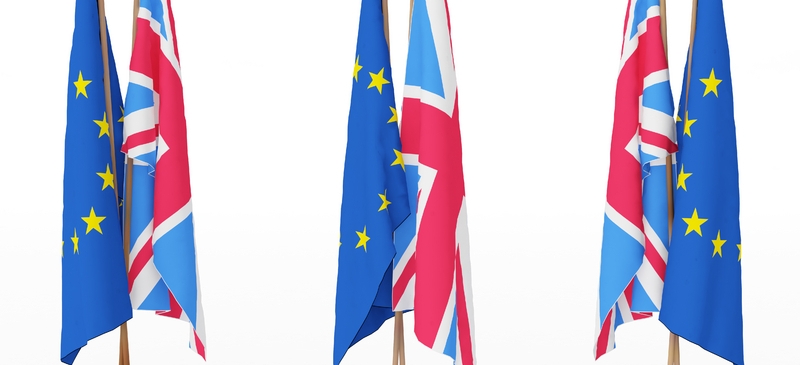
Britain and the EU: The cost of leaving
Britain’s media and political class have a right to be sceptical about the EU, even hostile to it. But they also have an obligation to be honest about the economic implications of a retreat from full membership of the Union. It would not reduce the regulatory and compliance costs facing British companies, but it would end the UK’s ability to shape the European single market.
Those calling for a renegotiation of the EU’s Lisbon treaty, or of the UK’s relationship with the EU more generally, rarely admit that this would inevitably lead to at best semi-detached membership of the EU – and more probably divorce. Many of them also appear to believe that a Britain outside the EU would remain part of the single market, enjoying its benefits, without having the obligation to abide by EU regulations. Leaving aside the fact that EU regulation would be replaced by British regulation, which would not necessarily be less onerous, the eurosceptic position betrays a poor grasp of how the EU works.
Many eurosceptics suggest that Britain should follow the example of Norway or Iceland, which, by virtue of their membership of the European Economic Area, take part in the EU’s single market without being full members of the Union. But to benefit from the EU’s single market, British firms – like those of Norway and Iceland – would still have to follow all its rules and regulations. There would be no British ministers or MEPs to shape EU legislation. The Council of Ministers and the European Parliament, lacking British members would have no reason to take account of British interests in drafting new rules. And Britain would not be able to stymie regulatory drives – for example in regulating financial markets – that threatened UK prosperity. That would be a nightmare for British business.
Eurosceptics ignore a further point. Britain is by some distance the biggest exporter of commercial services in the EU. It has a strong comparative advantage across a broad range of high value-added activities, stretching from business and legal services to the creative industries and, of course, to financial services. As such, it has a strong interest in opening markets for those services across the EU. But a Britain that has no say over the future of the single market will not be able to use its influence to push for more service sector liberalisation. It would be unable to challenge the self-serving idea put forward by some member-states that a single market in goods is one thing, but that open markets in services are somehow beyond the pale, or even a threat to social justice. Nor would it be able to ensure that the way service industries are regulated is not inimical to the interests of British business.
One only has to look at the financial services industry to see the risks. If British-based providers of financial services wanted to do business in the single market, they would still have to abide by whatever regulations the rest of the EU dreamt up. These would certainly be more restrictive in the absence of British involvement. At a time when other EU governments see an opportunity to attract business to their financial centres by subjecting the City of London to more onerous rules, would it really make sense to adopt a status that reduced the UK’s role to that of a bystander? How would Britain thwart the current rather heavy-handed attack on the private equity and hedge fund industries (in the EU’s draft directive on alternative investment) if it had no seat at the table?
Britian could, of course, withdraw from the EU and choose not to participate in the EEA either. It would then be free to set its own rules independently, free of ‘interference from Brussels’. But then the UK would be no more part of the EU’s single market than Japan or the US. Exports of British manufactured goods to the European mainland would be subject to tariffs. And Britain would have no say over EU product standards, which British firms would still have to comply with to sell their goods across the EU. Nor would the costs of producing for the UK market necessarily fall, because it would make no sense for British firms to make one set of products for the British market and another for the rest of Europe. In addition, the UK would find it harder to attract foreign direct investment, because many foreign companies that invest in the UK do so to service the European market.
British business needs the UK government to remain fully engaged in the EU, rather than to withdraw from the playing field out of some paranoid fear of a federal Europe that is never going to come about. The British economy cannot afford such self-indulgence. Britain needs to strive to ensure that EU financial regulation is – as far as possible – proportionate and compatible with the UK approach. More generally, it needs to make common cause with other economically liberal member-states to ensure that the EU evolves in a direction that serves British interests. Britain has been doing this successfully for the last ten years. If much of the country’s political class and media are unaware of the benefits this has brought and of the risks of a change of course, British business will need to tell them some home-truths.
Britain’s conversation about its relationship with the EU has long been devoid of the pragmatism and empiricism with which the country is traditionally associated. Some British eurosceptics genuinely believe that the UK can have its cake and eat it – that it can reduce the cost of EU membership while retaining all the existing and potential benefits. Others know exactly what they are doing. Their ultimate objective is for the UK to withdraw from the EU. This is a perfectly legitimate aim, but those who propose it should at least come clean about the economic costs.
